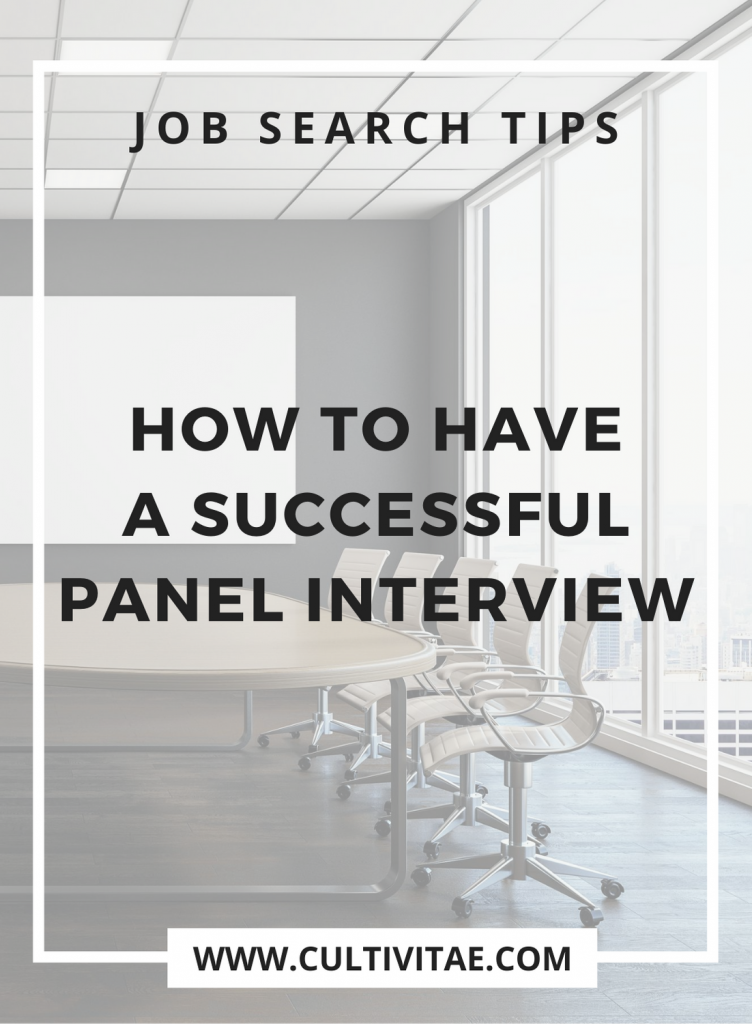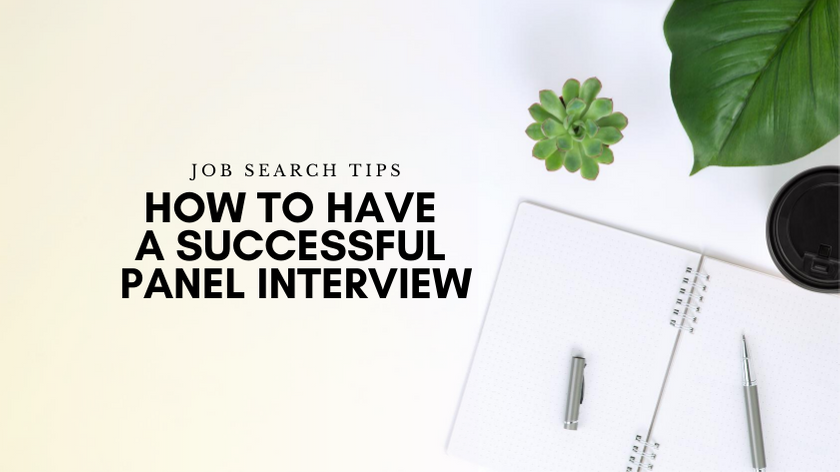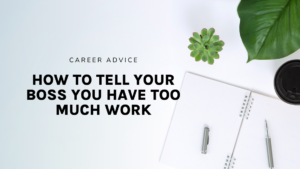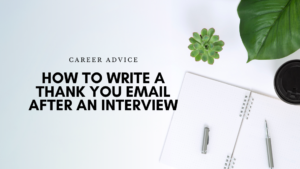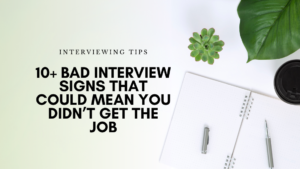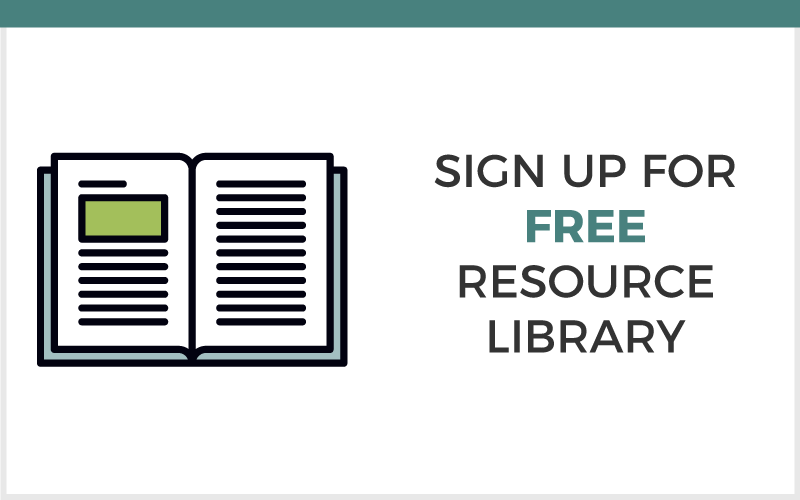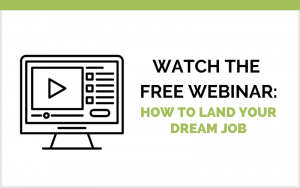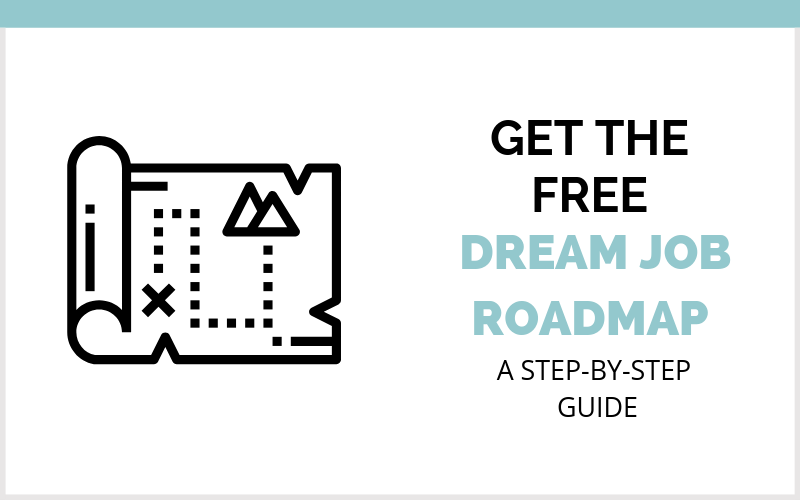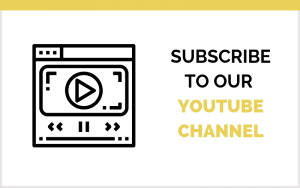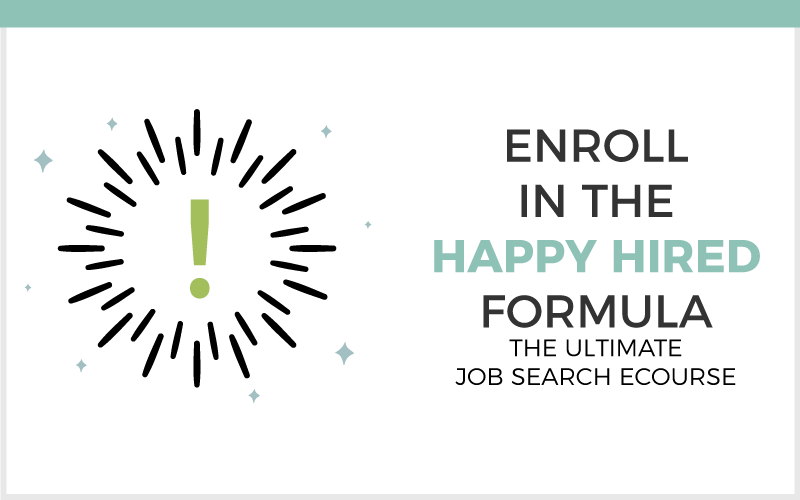When multiple people are asking you questions at once, it can be really, really intimidating. Sometimes we’re not sure how to present ourselves or if we should be doing things differently than we would in a one on one interview. So in this article, we’ll go over some of the best practices and tips on how to set yourself up for a successful panel interview. Continue reading along or watch the video below instead!
How to Set Yourself Up for a Successful Panel Interview
Why Panel Interviews are Conducted
Before we jump in, let me just share why panel interviews are conducted in the first place. First and foremost, it might be because the role that you’re going for frequently requires you to speak in front of multiple people at once. You might be going for a sales role or a similar role that has a lot of presentations, so they want to get a sense of how you interact with a group of people rather than just one person. And then sometimes it’s just for logistical purposes because sometimes companies would rather have everyone sit in one the same interview rather than booking out several separate interviews. Regardless of a company’s reasoning for a panel interview, you should usually be told who you’re meeting with at what time slot. So you’ll know if there are multiple names, it’s going to be a panel interview.
How to Prepare for Your Panel Interview
As with any interview, you want to make sure that you are coming in as prepared as you can be. And by prepared, I just mean that you have conducted research already on the company, on the role, and on the interviewers themselves. If you’ve gotten a list from the recruiter on who you’re meeting with, definitely Google their names and check out their LinkedIn profiles. The more you can learn about these people, the more you’re going to feel prepared and confident when speaking to them. If you have not received a list of the names of interviewers, you can absolutely ask the recruiter in advance. You can say something like, “In order to prepare for this as best as possible, would you mind sharing with me the names and titles of the people I will be meeting with?” and usually the recruiters or HR professionals are more than happy to provide that information for you.
RELATED: THE MOST IMPRESSIVE QUESTIONS TO ASK YOUR INTERVIEWER DURING A JOB INTERVIEW
So in addition to preparing for who you’re interviewing with, of course, you also want to prepare on what stories you want to tell during the interview or what accomplishments and relevant skillsets you want to highlight. Based on your understanding of the role, you can curate your narrative in advance so that it aligns with the job description and company culture. It’s also a good idea to brush up on the news surrounding the company you’re interviewing at and look into any recent accomplishments or headlines that you can mention to demonstrate you’ve done your research.
Finally, I have learned that in panel interviews it’s very common for certain people to get pulled in at the last minute. So just in case, make sure that you prepare to bring physical copies of your resume and have enough printed out. Back when I was interviewing, I usually added like 10 to 15 in my portfolio just in case somebody unexpected came. I know at the time of writing this, a lot of interviews have gone completely remote and virtual. So in this case, make sure that you have your resume somewhere accessible on your desktop that’s super easy for you to send. This way you can email it really quickly to somebody new that you’re interviewing with. As an added bonus, having the link to your updated, polished LinkedIn profile ready to send can be a game-changer if the opportunity arises. For comprehensive support revamping your resume and LinkedIn, check out my signature job search programs that have helped over 1,000 job seekers land their dream jobs.
RELATED: HOW TO CREATE A LINKEDIN PROFILE OPTIMIZED FOR JOB SEARCHING
Best Practices for Panel Interviews
Let’s talk more about the interview panel itself. If you are in an in-person interview, you absolutely want to give a firm handshake to every single person, look them in the eyes and introduce yourself individually to each. If you’re doing a virtual interview via conference, then you can absolutely just look at the camera. If so, you can individually acknowledge each person by their first name and let them know how excited you are to be interviewing with them today. It’s really key to make sure that everybody feels included. So while one person may be asking you the question, you can start off by addressing them and looking them in the eye (or if you’re on a virtual interview, maybe addressing them by their name) but as you go into expanding upon your answer, you can look at other people in the room, make eye contact or just address the entire audience. This will make all of the panelists feel drawn in and included, even if they weren’t the one to ask the specific question you’re answering. You can also let everyone know that if they have any additional questions, you’d be happy to expand upon anything as a way of opening up the conversation to everyone.
RELATED: HOW TO PREDICT AND PREPARE FOR INTERVIEW QUESTIONS
Resisting the Urge to Interpret Your Interviewers
I also just want to highlight for a moment that whenever you’re interviewing with a group of people, you might be tempted to read into their reactions too much. You might be reading the room and perceiving that people are tuned out disinterested, or unsatisfied with your answers. Try not to get into your own head about this because let me tell you, it’s nearly impossible to accurately interpret expressions in a situation like this. An interviewer can look completely bored with zero expression on their face while thinking to themselves how amazing you are and that they want to hire you on the spot. They just don’t know how to showcase that.
If you’ve has been in public speaking before, you know what I’m talking about. Sometimes you’ll be sharing something and one or two people will be nodding and smiling at you, but everyone else looks completely miserable and checked out. It’s tempting, but try not to evaluate or read into the situation too much. I actually know of an HR professional who teaches a masterclass for her Fortune 500 company on teaching employees how to look and pretend like they’re interested. Because surprisingly, a lot of people don’t realize that their expressions are really muted. So in your interview, pretend that everybody is smiling at you and trust that you know you’re delivering your best energy and your best responses.
RELATED: HOW TO NOT BE NERVOUS FOR AN INTERVIEW
Creating a Conversational Interview Environment
While conducting your interview, try to have more of a dialogue or conversation. What you want to avoid is feeling like this person’s asking you a question and then you’re just responding. It can get really difficult to break out of that Question, Answer, Question, Answer format. The best interviews are the ones where you have a conversation and you can really feel like you’re a part of the team and somebody who’s just really comfortable with the rest of the panel.
An easy way to do this is instead of just answering the question, highlighting something that somebody just said or piggybacking off of that before diving into your answer. So for instance, you could say something like, “I love what you just shared about this project. At my last job, we had something very similar to XYZ” and then transition into answering your question. This allows for rapport to be built quickly.
RELATED: HOW TO ANSWER TELL ME ABOUT YOURSELF: WHAT YOUR INTERVIEWER REALLY WANTS TO HEAR
So much of communication is about how you make the other person feel, rather than what you actually say. Context is important, but the more you can build energy, the better dynamic you’ll have. You want them to walk away from the interview feeling like you’re an integral team member versus just somebody that’s being interrogated. So again, wherever you’re coming in at with your comfort level around panel interviews, I just highly recommend that you remind yourself that once you’ve gotten to this stage (which usually means that you’re in the second or third round, which is phenomenal) they love what they see on paper. Now they just want to get to know you and meet you too. If you’re still nervous, also understand that the panel interview recognizes what kind of position they put you in. And generally, they’re really accommodating and will try to be very good at making you feel more comfortable and relaxed.
Following Up After the Interview
Don’t forget at the end of the interview to send out a thank you note to each individual interviewer! All you need is just one person’s email address and the other people’s full names to guess everyone’s email address following the same format. For example if the email you have is bill.smith@google.com and you also met with Wanda Chen, her email may just very well be wanda.chen@google.com. So you can kind of play around with it. If you get bounce backs or unable to make an educated guess, you can always safely send one group email for the entire interview panel.
